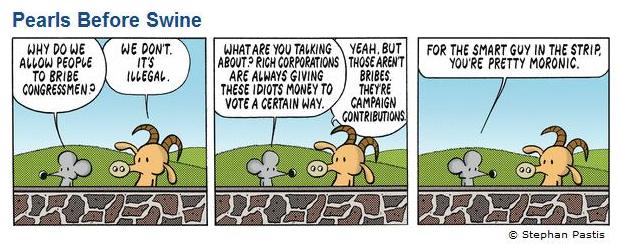Three related, ”systemic” problems work against our economic and social rehabilitation.
The evils of war
War has long been an egregious manifestation of taking competition and self-interest to extreme. Regardless of goal or purpose, war reduces human behavior to a horrific state and leaves a path of suffering and destruction far greater than killing the enemy.
James Madison described war as our most dreaded public enemy:

Culture, the rule of law, and civilized behavior are suspended in wartime; innocent civilian casualties, unpunished rape, torture and looting, the destruction of great cities, death by friendly fire – all are enabled by war. And the outrage expressed on either side when atrocities occur is uncanny – what else can be expected?
Providing for the national defense is a primary responsibility of any sovereign government. However, given the general failure of war as a lasting solution to anything, and in view of our recent experience in Vietnam, Iraq and Afghanistan, the U.S. and rest of the world need to eliminate this hideous activity, and more diligently pursue peaceful means of resolving conflict and furthering national objectives.
In his 1961 farewell address to the nation, President Dwight D. Eisenhower - previously commander of the Allied Forces during World War II – cautioned the nation about the threats of war and the emergence of what he called the military-industrial complex.
The power of money
Political power in the U.S. has become a matter of high finance, with our elected and appointed government officials beholding to their backers and well-financed special interests. Money buys media, media sways minds, and there are now a greater number of paid lobbyists than elected representatives in all houses of the federal and state legislatures. This was never the intention of our founders, nor was it envisioned that elected officials would devote much of their time to fund raising.
From the San Jose Mercury News, October 28, 2012

The number of special-interest groups continues to grow, as do their financial resources. Most legislation – enacted by the federal, state, or local government – is the result of lobbying efforts and the power of money to prevail over the common good. Almost any claim or position can be forced through the system with enough money; most elections are won by the richest candidate, well-financed lobbying efforts produce results, and government serves the monied interests:
- Large corporations pay virtually no federal or state income taxes
- Companies “too big to fail” escape the consequences of their actions
- Physicians take the side of the tobacco companies in a tax referendum
- Unions fight pension reform in the face of devastating financial consequences
The list grows. Money has become a dominant force in politics, overwhelming those without it and highly resistant to any form of control or change.
Corporate person-hood
Rooted in a controversial Supreme Court decision of 1886, and reaffirmed in 2010 by the Court, corporations have been granted rights virtually equivalent to those guaranteed to all U.S. persons – whether citizens or not – by the the Bill of Rights and as amplified by the 14th Amendment to the Constitution.
Backed by these decisions, corporations harness the power of money to promote and secure their own self-interests.
The validity of “corporate personhood” has essentially blocked attempts to lessen the power moneyed interests have over the government, including campaign finance reform efforts and the regulation of lobbyists. While it is necessary and reasonable in our system for corporations to have certain rights and protections under the law, it was never intended that they be made equal to people. Thomas Jefferson realized this plainly several years after leaving the office of the Presidency:
I hope that we shall crush in its birth the aristocracy of our monied corporations, which dare already to challenge our government to a trial of strength, and bid defiance to the laws of our country.
Thomas Jefferson, 1816
Jefferson’s words may seem harsh, but are noteworthy coming from one of the key architects of our nation after serving as President. They also tell us the problem isn’t new.
Today, abuses of money have become a tenacious part of the problem of government; and corporate personhood – the result of an obscure court case involving Southern Pacific fence posts – stands as a formidable barrier to reform.
Read our discussion of Myths – more obstacles to the effective application of logic and common sense.
